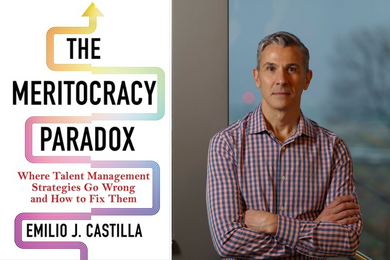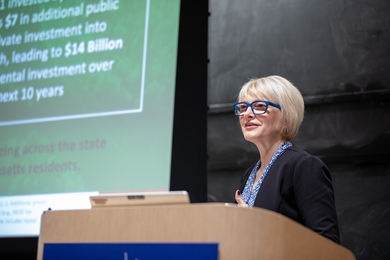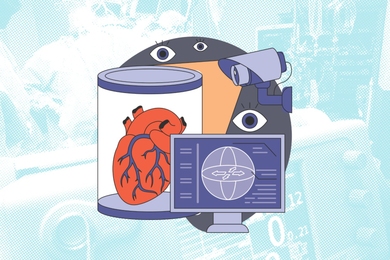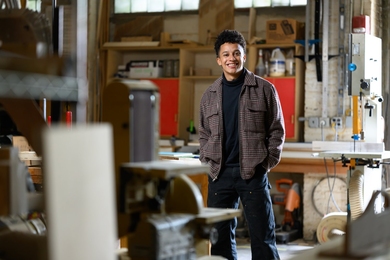Americans are largely supportive of federal funding for research in science and technology, but the "long-term underpinnings" of that support are subject to "near-term shifts in values," said former presidential science advisor Jack Gibbons in his second Karl Taylor Compton Lecture last week.
"This nation is interested in and committed to research," said Dr. Gibbons. But in a democracy, "governance is a process. We must constantly reacquaint people to the relevance of what we do" if we want to maintain government funding for scientific research at institutions of higher education. He urged individual scientists at MIT to become involved in the process.
Dr. Gibbons, a nuclear physicist and pioneer in the field of energy conservation, has spent the last two decades in Washington, first as director of the Congressional Office of Technology Assessment and then as science advisor to President Clinton from 1992 until earlier this year. He was at MIT on November 30 delivering his second 1998 Compton Lecture, "Governance of Science and Technology: Theory, Myths and Reality." The first, "The 21st Century: Will Science and Technology Contribute to Society or Scuttle It?" was presented on October 22 (see MIT Tech Talk, October 28, 1998).
During the mid-20th century, a shift in public perception led the way for science to develop into a national enterprise, with increased federal government involvement in determining direction and setting goals, said Dr. Gibbons. After World War II, that public involvement quickly led to a public questioning of scientific applications, such as the atmospheric testing of nuclear weapons and the use of pesticides, which was influenced by the publication of Rachel Carson's Silent Spring.
Since that time, American society has "enduring optimism about the rewards of science and technology, but no longer takes it for granted that the rewards will be positive," he continued.
The challenge, he said, is for scientists to become more vocal in communicating the links between science and technology and social concerns and societal goals. With few PhD researchers in Congress (there are now two physicists -- Rep. Vernon Ehlers, R-MI, and Rep. Rush Holt, D-NJ), the responsibility for this communication falls heavily on the shoulders of universities and individual scientists.
Dr. Gibbons praised MIT in this regard, which set precedent when Professor Vannevar Bush, former science advisor to President Franklin Roosevelt, determined national science policy with his 1945 report "Science: The Endless Frontier." He also praised President Charles Vest for the Institute's continued leadership in these issues.
Dr. Gibbons admitted that one problem inherent in the public promotion of science is the difficulty of assessing the value of research that has not yet been done. "How do you convince the American people to value and fund research when we can't say what will come from it?" he said. The Council of Economic Advisors findings that there has historically been a good return on government dollars spent in science and technology provided good ammunition for this battle, he said.
Other lessons gained during his Washington years are to know the territory, and understand the rhythms of governance and the importance of compromise. Carry with you a few well-thought-out ideas for future initiatives, expect surprises and be ready to respondappropriately, Dr. Gibbons said. (When the claimed evidence on a meteorite of early life on Mars became public, he convinced President Clinton to respond conservatively and reflect the scientific process rather than planning a mission to Mars, as one political advisor urged.)
Following Dr. Gibbons's talk, an audience member asked how scientists and PhDs could get more involved. Dr. Gibbons said that a doctoral education comes with a special responsibility to inform public debate and raise the level of awareness in society. "We need eternal vigilance to ensure the debate is elevated," he said.
When asked about his own switch from science to policy, Dr. Gibbons quipped, "I found out that policy work is a lot more difficult than doing physics."
Sponsored each time by a different academic department, the Compton Lectures have brought a distinguished array of global leaders to the MIT campus, including Hubert Humphrey, Japanese Prime Minister Yasuhiro Nakasone and Nobel laureates Niels Bohr, Linus Pauling and Oscar Arias Sanchez. This year's lecture series is sponsored by the Office of the Provost and the Department of Political Science. A third lecture is planned for the spring and will be announced later.
A version of this article appeared in MIT Tech Talk on December 9, 1998.





